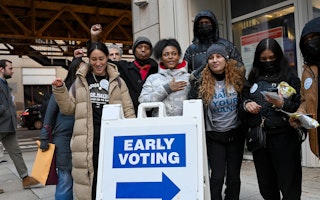Racial Discrimination in Maryland's Justice System Is Alive and Well
By Monique Dixon
Recently, the United States dominated the Summer Olympics by receiving more medals than any other country in the world. Sadly, the U.S. also leads the world in the number of people it incarcerates - about 2.3 million. And, most people in this country’s prisons and jails are disproportionately African American or Latino.
A few months ago, the Maryland State Advisory Committee of the U.S. Commission on Civil Rights held a meeting in the state’s capitol to discuss racial differences in Maryland’s criminal justice system. After hearing compelling testimony from national and local experts, including people who were formerly incarcerated, some Advisory Committee members still wondered whether these differences raised civil rights concerns.
What are civil rights? They are opportunities that are offered to each person by the U.S. Constitution and state or federal laws. They include the right to vote, the right to be represented by an attorney in criminal cases, and the right to be protected by the laws of this country regardless of one’s race or gender, for example.
In our view, racial differences in Maryland’s criminal justice system raise civil rights concerns. Let’s consider Baltimore City’s jail system. It incarcerates nearly 4,000 men, women and children on any given day. Eighty-nine percent of the adults held at the jail are African American even though they make up only 64 percent of Baltimore’s general population. Almost everyone held at the jail have only been accused of committing a crime and are awaiting their trial dates.
Now, some may argue that there are more African-Americans in the city jail because they commit more crimes. But, this is not true when it comes to drug offenses, for example. Research has shown that African American and white adults use illegal drugs at about the same rate, but African Americans are more likely to be incarcerated for drug offenses nationally and in Maryland. In fact, in Baltimore City, African-American young people consume alcohol and use drugs, such as heroin, at lower rates than their white peers.
Yet, the population of black youth who are charged as adults at the Baltimore jail is 99 percent; that is even higher than the overrepresentation of African-American adults at the jail. Why? Well, according to some national studies African-American youth are often incorrectly seen as more “adult-like” and more responsible for their actions than youth of other races. In fact, at least one study found that black boys were viewed by decision makers to be four years older than they were; therefore, a 14-year old boy could be treated like an 18-year old man. If this is true, then it would appear that African-American young people at the city jail do not receive the same protections or benefits that their white peers receive. This is a civil rights issue.
And if these black boys go to trial, are found guilty and receive a sentence, then they will leave the system with the added burden of a criminal record that may limit their right to vote or deny them access to employment. These are civil rights issues.
In a few months, the Maryland State Advisory Committee is expected to release a report to the U.S. Commission on Civil Rights detailing its investigation of racial differences in Maryland’s criminal justice system. We think, without question, that racial discrimination in the state’s justice system is alive and well, and it violates the civil rights of some black and brown people. We hope that the State Advisory Committee will agree, and make recommendations on how to put an end to this practice.
Until July 2014, Monique Dixon was the director of the Criminal and Juvenile Justice Program of OSI-Baltimore.


